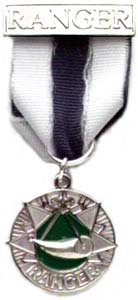These requirements became effective on June 1, 2014.
To see the requirements with the changes highlighted, Click here.
To see the previous requirements, Click here.
- Backpacking
- Develop a personal exercise plan and follow it for at least three months, exercising at least three times a week. Set your goals with backpacking in mind and write them down. Keep a daily diary.
- Backpacks
- Try on three types of backpacks. Learn how to choose the proper size frame for your body size. Learn and then be able to explain to others the difference between a soft pack, an internal frame pack, and an external frame pack. Tell the pros and cons of each type and what kind of trek you would take with each pack.
- Explain the different parts of a backpack and their use.
- Learn the proper way to lift and wear your backpack.
- Describe at least four ways to limit weight and bulk in your backpack without jeopardizing your health and safety.
- Learn how you would load an internal frame pack versus one with an external frame.
- Packing gear
- Pack your backpack with your personal gear, including outdoor essentials, additional gear, and personal extras. Pack as though You were sharing equipment with one other person for a three-day, two-night backpacking trip.
- List at least 10 items essential for an overnight backpacking trek and explain why each item is necessary.
- Present yourself to an experienced backpacker, unload your pack, have him or her critique your packing, then repack your pack. Have him or her critique your efforts.
- Cooking
- List at least 20 items of group backpacking gear. Include a group cleanup kit.
- Learn how and then demonstrate how to cook a meal using a backpacking stove.
- Demonstrate proper sanitation of backpacking cook gear,.
- Learn how to properly pack and carry a backpacking stove and fuel.
- Environmental impact
- List at least 10 environmental considerations that are important for backpacking and describe ways to lessen their impact on the environment.
- Considering Leave No Trace principles, tell how to dispose of the human waste, liquid waste, and garbage you generate on a backpacking trip.
- Three treks
- Participate in three different treks of at least three days and two nights each, covering at least 15 miles in distance each.
- Plan and lead a backpacking trek (can be one of the treks in (a) above) with at least five people for at least two days. This group can be your crew, another crew, a Boy Scout troop, or another youth group.
- Plan the menu for this trek using commercially prepared backpacking foods for at least one meal.
- Check for any permits needed and prepare a trip plan to be left with your family. Have an emergency contact number.
- Using the map you used to chart your course, brief the crew you are leading on your trip plan.
- Lead a shakedown for those you are leading.
- Outerwear
- Learn about proper backpacking clothing for backpacking in all four seasons.
- Learn about proper footwear, socks, and foot care.
- Learn and then demonstrate at least three uses for a poncho in backpacking.
- Health and first aid
- Learn about trail health considerations and typical backpacking injuries such as hypothermia, frostbite, heat exhaustion, heat stroke, altitude sickness, dehydration, blisters, stings and bites, and sprains and how to avoid and treat these injuries and illnesses.
- Because fluid intake is so important to a backpacker, tell how to take care of your water supply on a backpacking trip. include ways of treating water and why that is important.
- Using all the knowledge you have acquired about backpacking, make a display or presentation for your crew, another crew, a Boy Scout troop, or another youth group. Include equipment and clothing selection and use, trip planning, environmental considerations, trail health and safety considerations, food selection and preparation, and backpacking physical preparation.
| Checklist for use in working on these requirements: | Format | |
|---|---|---|
| Word Format | PDF Format | |
Source: Venturing Awards and Requirements
(34784 - SKU 618767) and
www.scouting.org/filestore/venturing/pdf/Ranger_Award_Requirements.pdf.








